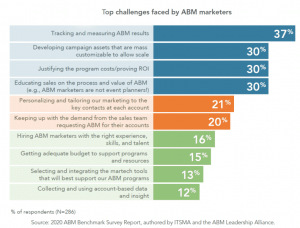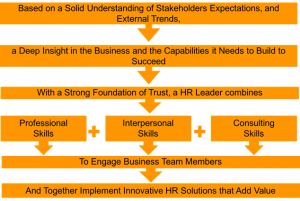Why adaptability is the real key to successful leadership
Adaptability is paramount to true leadership success, according to Alexa von Tobel. It means not just surviving but transforming—starting as a butterfly and emerging as a dragon.
In today’s digital age, we’ve encountered all the buzzwords about what it takes to become an exceptional leader—tenacity, determination, authenticity—the list goes on. We all know and swear by psychologist Angela Duckworth’s iconic book, aptly named Grit.
But I want to articulate a subtle nuance about the word most often used to describe exceptional leaders: resilient. Resilience is important. It’s the trait that lets you survive like a cockroach, navigating through the toughest of times, and emerging intact on the other side. However, during tumultuous periods or rapidly evolving markets—such as today’s AI-driven landscape—resilience alone isn’t sufficient. The trait that surpasses resilience is adaptability.
Adaptability is paramount to true leadership success. It means not just surviving but transforming—starting as a butterfly and emerging as a dragon. Charles Darwin captured this idea perfectly when he said, “It is not the strongest of the species that survive, nor the most intelligent, but the one most responsive to change.” While resilience helps you weather the storm, it is adaptability that empowers you to harness its energy and steer towards unprecedented growth. It’s about thriving amidst chaos and evolving into your most formidable self. Let’s discuss some examples of resilience in action.
Strengthen your mental armor
Who better to discuss mental toughness with than an Olympic athlete who trained in sub-zero temperatures to launch herself from mountain peaks at speeds of 100 miles per hour? Echoing Olympic gold medalist Lindsey Vonn’s words on my podcast, “By the end of my career, I was physically less than half the athlete I used to be—but mentally, I had become three times the athlete I was before.”
Vonn’s athletic career was far from smooth. She faced numerous setbacks and serious injuries that most people could not endure, but her mom instilled in her the importance of finding positivity in any situation. She credits this attitude for enabling her to build the mental fortitude needed to push her forward.
From a very young age, she decided she wanted to be the greatest ski racer of all time. Once you have set a goal, remember to always look towards that north star when you’re dealing with a challenge and ask yourself: How can I reframe this situation as an opportunity to get closer to my goal? Setbacks are inevitable. Change is inevitable. Vonn’s ability to reframe adversity and use it as an opportunity for growth is a powerful lesson in a differentiated kind of leadership and adaptability.
Build a 5-year working plan
When I work with founders in the early stages of building their companies, I emphasize the importance of codifying both short-term and long-term plans. The most successful leaders and entrepreneurs I know are those who can clearly articulate their vision and have established a 5-year roadmap to achieve their goals. These plans will change and evolve—if not daily. But when problems inevitably arise, a 5-year plan allows you to quickly contextualize new information and ask yourself again: How can I continue advancing my 5-year plan in this moment?
In sports, we’re taught to see the whole field—to lift our heads and capitalize on any missteps from our opponents. The same principles apply in business. When you know where you want to go and can see the landscape ahead (a business plan), you can actually take advantage of a crisis—not just withstand it. You can swiftly execute your next steps and hone your adaptability at a pace that those without a long-term plan simply cannot match.
Master composure amidst chaos
As we all know, success never happens in isolation. You may be a leader within your business, but your team supports every move you make. In times of uncertainty, the most adaptable leaders can inspire their team to be the best version of themselves and help them to navigate stress with poise.
How can you do this? The first step is to lead by example. When I sold my first business, LearnVest, it just so happened to coincide with the same week of my first child’s due date (we sold on a Wednesday and I went into labor literally that weekend).
At that point in my life, nothing could have prepared me to manage such profound change in such a short amount of hours. But during that period, I discovered a new version of myself that I had not yet harnessed: a sixth gear turned on that was exceptionally calm, clear-headed, and maniacally detailed through a major challenge.
I allowed the stress to activate my abilities, not weaken them. I tightened the gears operationally, and strategically, and refocused my attention to think critically about each decision we made. I found confidence through our preparation and the entire team’s work ethic.
Much like Lindsey Vonn’s approach, we remained laser-focused on our mission. Adaptable leaders quiet the noise of doubt or distraction and focus on the avenues that lead them to their goals—not the roadblocks they must overcome to get there.

ABOUT THE AUTHOR
(11)
Report Post








